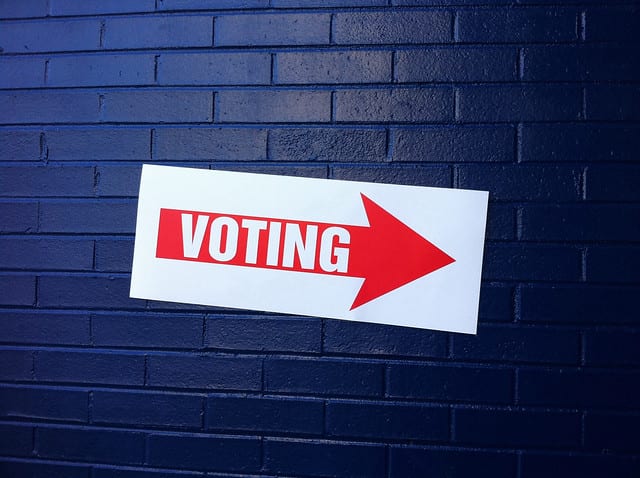
Contemplative Voting
Voting is something I have practiced for almost as long as I can remember. A practice of contemplative voting has been growing in me more recently.
Politics and voting have always been important to me. I have voted for president in four different states, as well as for senators, representatives, governors, legislators, and all the local offices. Some places where I lived held elections for judges as well as propositions and referenda, and I voted for them.
I grew up in a time of strong opinions and urgent issues. As a young person I saw voting as a way to make significant changes. When I went to school I studied political science, law, and public policy.
I was good at analyzing proposals and making persuasive arguments.
Most of my attention was on the mechanics of voting and getting more people to cast a ballot.
My earliest voting patterns reflected the values of my family and local community. I studied the candidates and the issues and convinced myself I was voting wisely. Elections were essentially a competition between two parties. We want one party to win and the other party to lose.
Some of us experience elections as contests between competing sets of ideas. We sort through information and campaigning trying to understand which way we will voted based on our own perspectives.
I have begun to approach voting differently. My priorities are moving from partisan voting in a contest to something else. I am trying to develop a spiritual practice of contemplative voting.
For me, contemplative voting begins with listening rather than analyzing or arguing. It is easy to allow the contest and competition to distract us from contemplative voting.
Does the way we vote reflect our deepest values, our truest selves? How can we practice contemplative voting?
Practicing Contemplative Voting
We get caught up in the ideas and information, or in the feelings and enthusiasm, of voting. Some of us are overwhelmed by the torrent of words each time we vote. The campaign advertising, position papers, and background stories make our minds swim. The campaigns are trying to influence our opinions, pushing them back and forth, until we do not recognize them.
Our culture treats voting like a commercial transaction. Campaigns and candidates employ increasingly sophisticated methods to seek themselves and their ideas to us. All their efforts, and the money they raise and spend, are focused on the single goal of winning the election.
Some of us do not pay attention to how our voting is being influenced. Others are tempted to surrender to their frustrations and not vote at all.
I hope to approach and participate in this election by practicing contemplative voting. It is important to me to understand how campaigns and elections work while not allowing my frustrations to stop me.
My first tangible step toward contemplative voting is taking time to pause, take a deep breath, and listen.
Voting is more than deciding which set of ideas or which competing party has won me over. I need to take enough time to see the larger picture. When I have done the work to know my own values, I can begin to appreciate how these decisions will reflect them.
Reflecting and contemplation are essential prerequisites for contemplative voting. I might look to other people like I am not doing anything as I am allowing the questions of an election marinate in my values.
Time in a rocking chair, watching a fire in the fireplace, or taking a walk help feed my practice of contemplative voting.
What Contemplative Voting is Not
Contemplative voting is not about avoiding decisions. It is not an easier, less stressful approach to politics. If anything, it requires more time and effort than simply reacting to the influences which bombard us.
I am only able to vote contemplatively, if I can, because I appreciate, enjoy, and understand the political process. It is not a war to avoid the intensity or intricacies of our political system.
Contemplative voting is not being about focused on the outcome of an election. Each time we vote is about so much more than who wins and who loses. We can only imagine what the current election would feel like if more of us were more contemplative and less argumentative.
A contemplative approach to voting is not a way to stay away from the work of making decisions or making choices. In many ways it is harder work to vote contemplatively than to get caught up in the analysis or emotions of voting.
Contemplative voting is not a checklist or easy to understand quickly. We begin to take time to listen and come to terms with our own core beliefs as we put the into practice through voting.
It is not a way to effect change immediately.
Contemplative Voting Over Time
As I approach my vote more contemplatively I begin to see the people and positions I support are not paramount. If more of us were to begin voting contemplatively our elections and our politics would be more reflective and less divisive.
Each of us can choose to make our politics more contemplative and less combative. How we approach and understand politics and voting shape the ways we vote and practice politics.
Do our own values shape our voting and our politics, or do we merely sit on the surface of each election not paying attention?
This election can be the beginning of a new way of voting for us. We will not immediately become contemplative voters the first time we vote. Each time we approach a vote contemplatively will shape us and help us grow.
Elections can be a spiritual practice for us, drawing us deeper in our understanding. The ways we approach politics and voting can help us learn important lessons about spiritual life.
Where could contemplative voting take us?
How can we take steps toward beginning contemplative voting today?
Are there other people who can help us grow into contemplative voting this week?
[Image by justgrimes]
Greg Richardson is a spiritual life mentor and coach in Southern California. He has served as an assistant district attorney, an associate university professor, and is a lay Oblate with New Camaldoli Hermitage near Big Sur, California. Greg’s website is StrategicMonk.com and his email address is [email protected].












